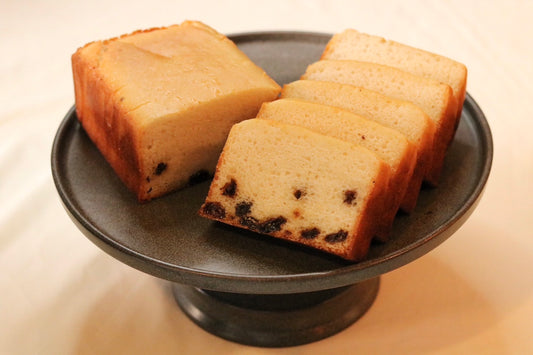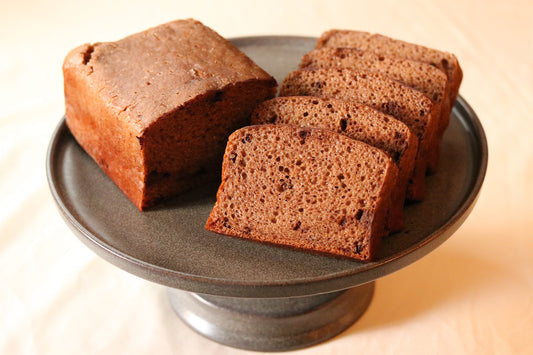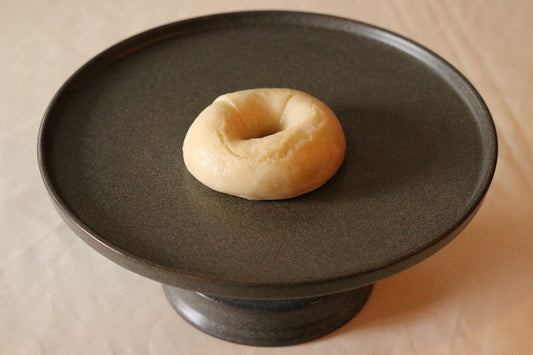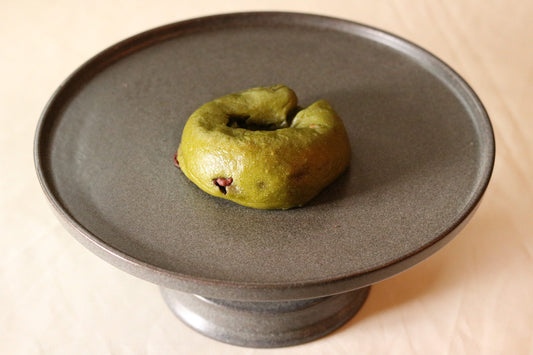Local conditions and strategies to know when entering the gluten-free market in Europe

The gluten-free situation in Paris and consumer characteristics
Growing interest in gluten-free foods amid diversifying values

Paris has a strong bread culture, including the traditional baguette . However, in recent years, interest in gluten-free products has grown along with growing health consciousness and diversifying lifestyles.
Gluten-free products are especially essential for people with gluten intolerance, such as those with celiac disease. The idea of avoiding gluten to manage one's health is also becoming more widespread among health-conscious people. Parisian consumers are increasingly seeking products that combine deliciousness with health .
What gluten-free products are Parisians looking for?

The unique needs of France, a country of health-conscious and fine cuisine
France is known as a country of fine cuisine, and Parisians are particular about the quality of their food. Even when it comes to gluten-free products, they don't want to compromise on taste or texture.
There is a demand for gluten-free products that are not simply wheat-free, but that can reproduce the taste of authentic bread and sweets . Health considerations, such as the use of organic ingredients and minimal additives, are also important. Parisians are looking for products that are not only gluten-free, but also safe, secure, and healthy.
The key is to achieve both high quality and deliciousness
For gluten-free products to be widely accepted, it is essential to use high-quality ingredients and excellent manufacturing techniques . When using grain flours such as rice flour, corn flour, and buckwheat flour as substitutes for wheat flour, ingenuity in the flour composition and processing method is required. In addition, technical skills are required to achieve the optimal texture and flavor for each product, such as bread, pasta, and cake.
High-quality gluten-free products that are both tasty and easy to eat are sure to be accepted by many Parisians . The key to success in the Paris gluten-free market is to balance the seemingly contradictory needs of health-conscious people and those who pursue fine cuisine.
New York's Potential for the North American Market
Diversity creates growing demand for gluten-free foods

New York is known as a melting pot, bringing together a diverse range of people from all over the world . This diversity has a major impact on food preferences and demand. Gluten-free products are attracting attention not only from people with gluten intolerance, such as those with celiac disease, but also from a wide range of health-conscious people . The diverse backgrounds of New Yorkers are expanding the potential of the gluten-free market.
A melting pot of races creates diverse tastes
New York is home to immigrants from all over the world and a diverse range of food cultures . This means that gluten-free products have the potential to be incorporated into a variety of ethnic cuisines. For example, corn tortillas, commonly used in South American cuisine, are gluten-free.
Additionally, in Asian cuisine, there are breads made with rice flour, such as naan, ruppan, and chapati. Influenced by such diverse food cultures, there is a growing demand for gluten-free products in New York.
Gluten-free for allergy sufferers
New York City is known for having a relatively high percentage of people with food allergies , with gluten being a notable example, and it is becoming increasingly common for restaurants and cafes to offer gluten-free options on their menus.
Gluten-free products are also expected to be in demand as allergy-friendly foods . Furthermore, gluten-free products are an important option for children with allergies. Providing gluten-free menus in school lunches and other settings will help to increase food safety and inclusivity .
Expansion of the gluten-free market amid a health boom

In recent years, there has been a boom in health consciousness in New York and across North America. There is growing interest in health-conscious foods such as organic foods, plant-based foods, and gluten-free products. In response to this trend, the gluten-free market has experienced significant growth. Supermarkets are now often setting up dedicated sections for gluten-free products.
Additionally, the number of gluten-free specialty bakeries and restaurants is also on the rise. Growing health consciousness is driving the gluten-free market . Combined with New York's diversity and health boom, demand for gluten-free products is expected to continue to grow in the future . Development and sales strategies for gluten-free products that take the entire North American market into account will be required.
The potential of Japanese rice flour spreading from Spain to other European countries
Japanese rice flour (Komeko) becomes a hot topic in Madrid

In Madrid, the capital of Spain, Japanese rice flour "Komeko" is attracting a lot of attention . It is highly acclaimed for its fine texture and high quality, which differs from traditional European rice flour. Developed in collaboration with a local flour milling company, "Komeko" has also received high praise from Spanish chefs.
Komeko, with its properties suitable for gluten-free foods, is bringing new possibilities to the Spanish market . Madrid-based wholesaler Suministros Dietéticos Controlados (SDC) is working hard to popularize Komeko. As a company specializing in gluten-free foods, the company has focused on the high quality of Komeko. SDC is actively developing recipes using Komeko and conducting sales promotion activities, working to increase awareness of Komeko within Spain . The arrival of Komeko is a breath of fresh air in the Spanish gluten-free market.
Growth and Opportunities in the Gluten-Free Market in Europe

Demand for gluten-free foods is increasing year by year in Europe. Not only are there more people with gluten intolerances such as celiac disease, but also an increasing number of people are choosing to avoid gluten due to growing health consciousness .
In this context, Japanese rice flour "Komeko" offers great opportunities in the European gluten-free market. The fineness and high quality that are characteristic of "Komeko" will make it an attractive option for European consumers .
Demand for gluten-free foods is also increasing in major countries such as France, Germany, and Italy. Products such as bread, pasta, and confectionery made with "Komeko" have great potential in European countries . Japanese rice flour may be the key to developing the European gluten-free market.
The wide variety of possibilities for rice flour foods

Japanese rice flour, including "Komeko," is attracting attention for its versatility. In addition to traditional wheat flour products such as bread, pasta, and sweets, the unique properties of rice flour are opening up new possibilities for food development .
For example, gluten-free pizza dough made with rice flour or chewy cookies are conceivable. Traditional Japanese sweets made with rice flour could also offer new appeal to the European market . Japanese rice flour has the potential to create new value by fusing with European food culture.
Starting with "Komeko," the day may soon come when Japanese rice flour will be popular in European countries. It is expected that Japanese rice flour will make its presence felt in the new field of the gluten-free food market . It may not be too far in the future before a wide variety of rice flour foods graces European dining tables.
The key to successful overseas expansion is understanding local needs
The importance of local research to understand consumer needs in each country

To successfully enter overseas markets, it is essential to accurately understand the needs of consumers in each country . Desk research alone will not allow you to hear the real voices of local people. It is important to actually visit the local area and research consumer preferences, lifestyles, purchasing behavior, etc.
Local research requires analyzing needs from multiple perspectives . It is necessary to conduct a comprehensive survey that includes not only product needs but also package design, price range, sales channels, etc. It is also necessary to take into account local culture, customs, and values.
Consumer needs vary widely from country to country, so a one-size-fits-all approach won't work . Striving to understand detailed needs through local research is key to successful overseas expansion.
Learn about the differences in distribution and sales channels in each country

When considering expanding overseas, it is important to understand the differences in distribution structures and sales channels in each country . The format of retailing and the role of wholesalers can vary greatly depending on the country. For example, in Europe and the United States, major supermarket chains are the main sales channel, but in some Asian countries, independent stores play a major role.
In order to create a sales strategy that is suited to each country, it is essential to understand the characteristics of distribution and sales channels.In addition, the prevalence of online sales and the maturity of the e-commerce market vary greatly from country to country.
It is necessary to understand the purchasing behavior of local consumers and the characteristics of each sales channel . Developing an optimal sales strategy that takes into account the differences in distribution and sales channels will lead to successful overseas expansion.
Understanding legal aspects such as regulations and labeling obligations is also essential

When expanding overseas, it is essential to understand the legal aspects, such as the laws and regulations of each country and labeling obligations . In the case of food, regulations vary from country to country, such as restrictions on the use of raw materials and additives, and obligations to label allergens. Violating these regulations not only prevents you from selling your products, but could also lead to significant losses.
Another important aspect is protecting intellectual property, such as trademarks and patents. Prior research and measures are necessary to ensure your company's products and technologies are properly protected locally . Furthermore, each country's tax system and customs procedures can have a significant impact on sales prices and profit margins. You should also consider seeking expert advice to ensure smooth legal procedures related to imports and exports.
To successfully expand overseas, it is essential to understand and deal with the legal aspects. It is important to accurately grasp regulations and obligations and take appropriate measures.
summary
The gluten-free situation in Europe and the characteristics of each country

We found that the gluten-free market in Europe varies greatly from country to country . In Paris, France, traditional bread culture is deeply rooted, and interest in gluten-free products seems to be relatively low.
Meanwhile, in Madrid, Spain, the gluten-free market is expanding , with Japanese rice flour "Komeko" attracting attention. In the UK and Germany, demand for gluten-free foods is also on the rise due to growing health consciousness.
As you can see, the gluten-free situation in each European country is diverse, making detailed market research essential . Accurately understanding the consumer needs, preferences, and distribution structure of each country will lead to successful overseas expansion.
The need for an overseas expansion strategy that leverages Japan's strengths

The strengths of Japanese rice flour are its fine texture and high quality. Utilizing these strengths, it is expected to provide new value to the European gluten-free market . Branded rice flour such as "Komeko" will be particularly effective in differentiating itself.
Furthermore, with Japan's rich food culture as a backdrop, there is great potential for the development of a wide variety of food products using rice flour . Japanese foods such as wagashi (traditional Japanese sweets) and ramen are popular worldwide, and there may be opportunities to enter the gluten-free market. What is needed is a product development and sales strategy that takes advantage of Japan's strengths while also meeting local needs.
The key is to balance localization and global expansion

Successful overseas expansion requires a balance between localization and global expansion . While product development and sales strategies must be tailored to the needs and preferences of consumers in each country, a global perspective is also essential.
Companies are required to take strategic steps with an eye on the global market while leveraging their own strengths. It is also important to comply with legal requirements, such as regulations and labeling requirements. It is essential to accurately understand the regulations of each country and take appropriate measures .
You should also consider collaborating with local partners. Cooperating with local companies in areas such as distribution, sales, and marketing may enable more effective overseas expansion . Striking a balance between localization and global expansion while strategically advancing overseas will likely be the key to success.
Gluten-free rice flour menus are available for purchase online at "Komeko's Palette"

Komeko's Palette is a mail-order website that sells gluten-free and rice flour-based meals and is supported by many people . As the need for safe and secure food increases due to growing health consciousness and an increase in the number of people with food allergies, Komeko's Palette is working on product development with its own unique commitment.
Our commitment can be summed up in three points: "Completely no additives," "No wheat (gluten-free)," and "No refined sugar." By thoroughly adhering to these points, we aim to provide healthy, safe, and delicious products.
Commitment to completely additive-free
All products at Komeko's Palette are completely additive-free. We do not use any food additives and create products that value the natural flavor and nutrition of the ingredients. Each product is carefully crafted so that it can be enjoyed safely by everyone, from children to the elderly. We are committed to providing "safe, secure, and delicious" products and are helping to add color to your dining table.
Commitment to wheat-free
Komeko's Palette does not use any wheat in any of its products. We have taken care to ensure that people on a gluten-free diet or with wheat allergies can enjoy our products with peace of mind .
Instead of wheat, we use nutritious rice flour and other natural ingredients that are gentle on the body. We strive to create a moist texture and a taste that brings out the flavor of the ingredients, making it delicious even without wheat . Whether you're gluten-sensitive or not, we want everyone to be able to enjoy the same delicious taste at the same table.
Commitment to no refined sugar
Komeko's Palette does not contain any refined sugar. To avoid a sudden rise in blood sugar levels, we use natural sweeteners such as beet sugar and cane sugar instead of highly refined refined sugar .
The natural sweetness brings out the flavor of the ingredients themselves, creating a mellow and deep taste.We are committed to using a manufacturing method that does not use refined sugar, as we want to deliver sweets and foods that are not just sweet, but also healthy and can be enjoyed safely every day .
"Komeko's Palette" offers healthy, safe, and delicious eating habits through gluten-free and rice flour products. Each product is carefully crafted with a commitment to being completely additive-free, wheat-free, and refined sugar-free, and is popular with many people. "Komeko's Palette" products are enjoyed by people with food allergies and health-conscious people, as well as everyone looking for delicious food.
Gluten-free rice flour bread can be purchased online from "Komeko's Palette"









